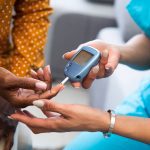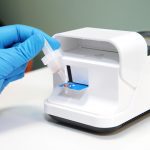Home Search
diabetes - search results
If you're not happy with the results, please do another search
Search for new type 1 diabetes treatments aided by siblings with genetic change
Two siblings who have the only known mutations in a key gene have helped scientists find potential type 1 diabetes treatments.
The new research, published...
NHS introduces ‘artificial pancreas’ to revolutionise diabetes management
The NHS in England is set to provide an 'artificial pancreas' to tens of thousands of individuals grappling with type 1 diabetes.
NHS programme cuts type 2 diabetes risk by 20%
An NHS behaviour-change programme has successfully reduced type 2 diabetes risk in adults with raised blood sugar in the UK.
According to new research funded...
The NHS type 2 diabetes prevention scheme helps thousands of people
A new scheme has aided type 2 diabetes prevention, helping thousands of people avoid the condition through added support and care.
Type 2 diabetes is...
Diabetes and high systolic blood pressure can increase dementia risk
People with multiple cardiometabolic conditions such as diabetes and high systolic blood pressure are more likely to develop dementia, according to the University of...
The effects of gestational diabetes mellitus on children’s neurodevelopment
Gestational diabetes mellitus can have negative effects on the neurodevelopment of two-year-old children, according to the University of Turku.
Despite the negative effects of gestational...
Nitrites in food additives can increase the risk of type 2 diabetes
A new study has found an association between exposure to nitrites and nitrates in food additives and the risk of type 2 diabetes.
Nitrites and...
Machine Learning can predict glycaemic control in diabetes patients
The risk of poor glycaemic control in type 2 diabetes patients can be predicted using Machine Learning methods, according to new research from the...
Intermittent fasting diet could reverse type 2 diabetes
A new study has found that an intermittent fasting diet can help people who require type 2 diabetes medication.
Researchers found that an intermittent fasting...
Drinking coffee frequently may reduce type 2 diabetes risk after pregnancy
A new study pioneered by researchers in Singapore suggests that regularly drinking coffee potentially lowers the risk of developing type 2 diabetes for women...
Should patients choose their own type 2 diabetes medication?
A new study has suggested that patients should be put in charge of their own type 2 diabetes medication.
The Trimaster large-scale study is the...
A new polymer can accelerate the diabetes wound healing process
A new material has been discovered by researchers at the University of Nottingham that may help the diabetic wound healing process.
The researchers have discovered...
Undiagnosed type 2 diabetes can be found two years early using screening
A new study suggests that population screening could be a useful tool to discover undiagnosed type 2 diabetes cases.
A standard diabetes test could be...
University of Oxford researchers discover a key cause of type 2 diabetes
New research has illuminated the key cause of type 2 diabetes, finding that high blood glucose reprograms the metabolism of pancreatic cells.
Around 415 million...
A potential new type 1 diabetes medication has been discovered
A new type 1 diabetes medication could prevent the disease by inhibiting a gene associated with the onset of the disease, according to the...
Anti-cholesterol and diabetes drugs may reduce the risk of eye disease
Regularly taking anti-cholesterol and diabetes drugs may lessen the risk of degenerative eye disease associated with ageing, according to new research.
Findings from a pooled...
People with diabetes are more susceptible to trigger finger
Trigger finger, a condition where fingers get locked in a bent position, is more common in people with diabetes according to research from Lund...
Using point of care diabetes testing to improve treatment
LumiraDx’s new HbA1c test, run on the LumiraDx point of care platform, could dramatically improve patient management, and reduce healthcare costs associated with delays...
Researchers use 3D bioprinting to develop a diabetes treatment
Queen’s University Belfast researchers have designed a new bandage treatment using 3D bioprinting, which could revolutionise diabetes treatment.
Diabetes is a lifelong condition that causes...
Children with Down’s syndrome are highly susceptible to diabetes
According to new research from Queen Mary University of London and King's College London, young adults and children with Down’s syndrome are four times more...





















